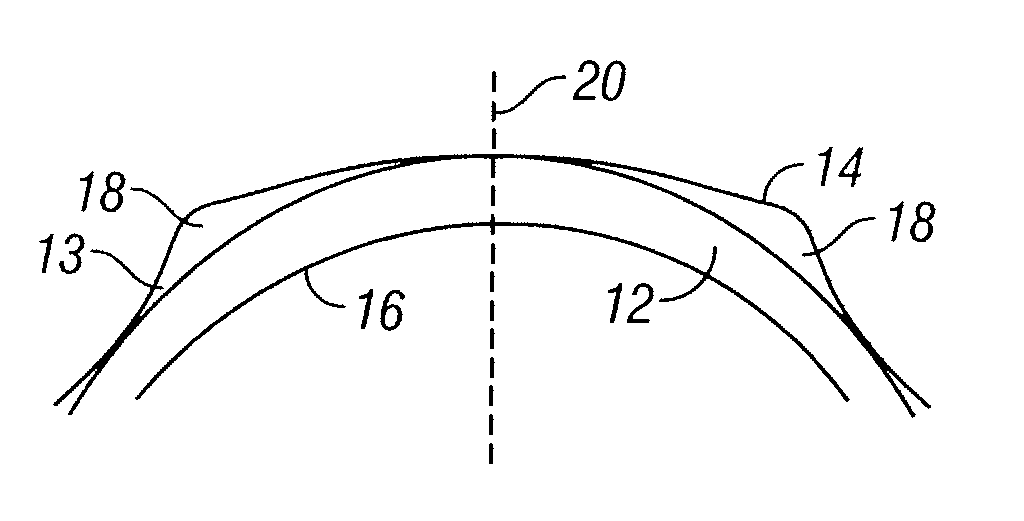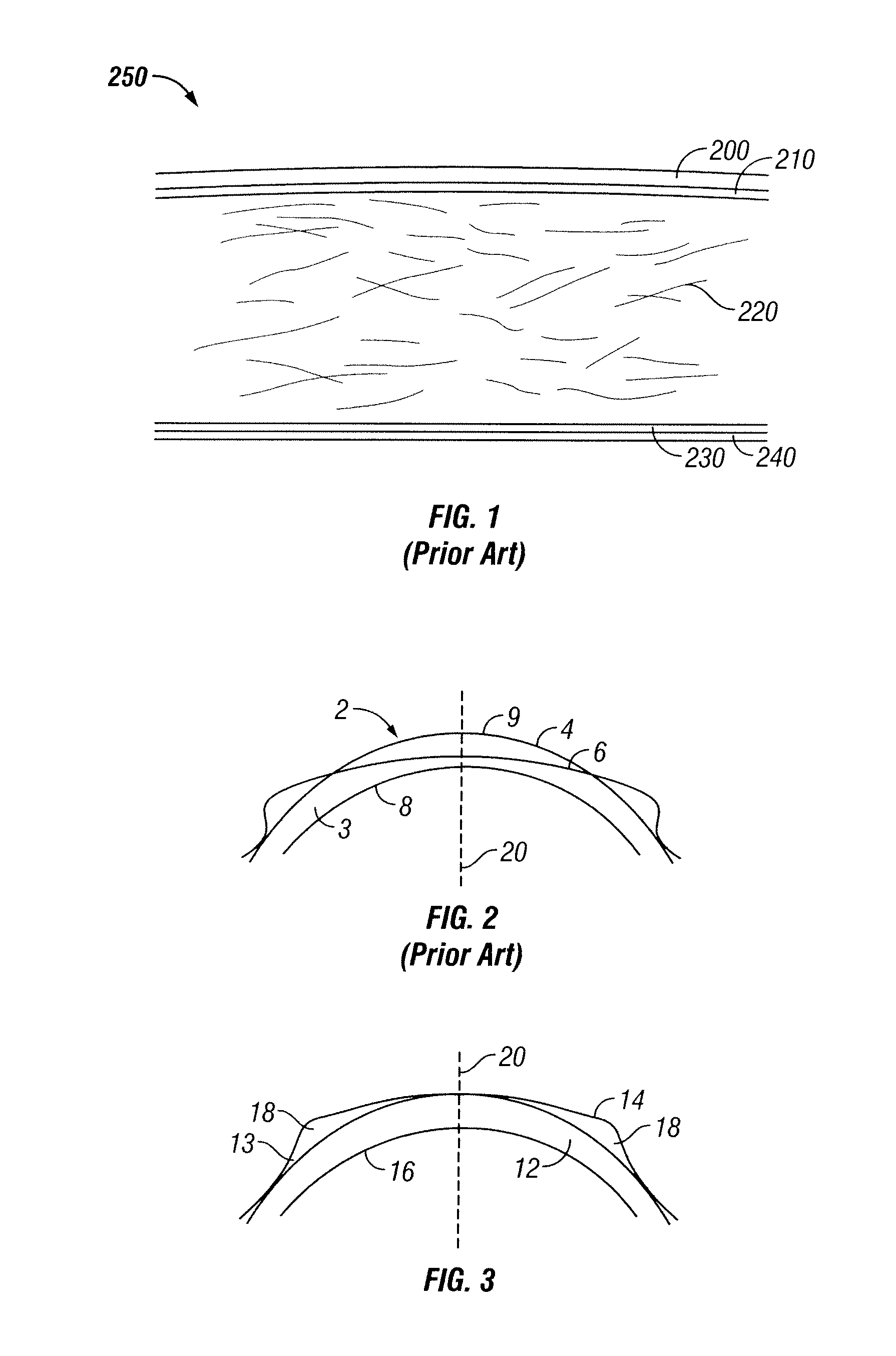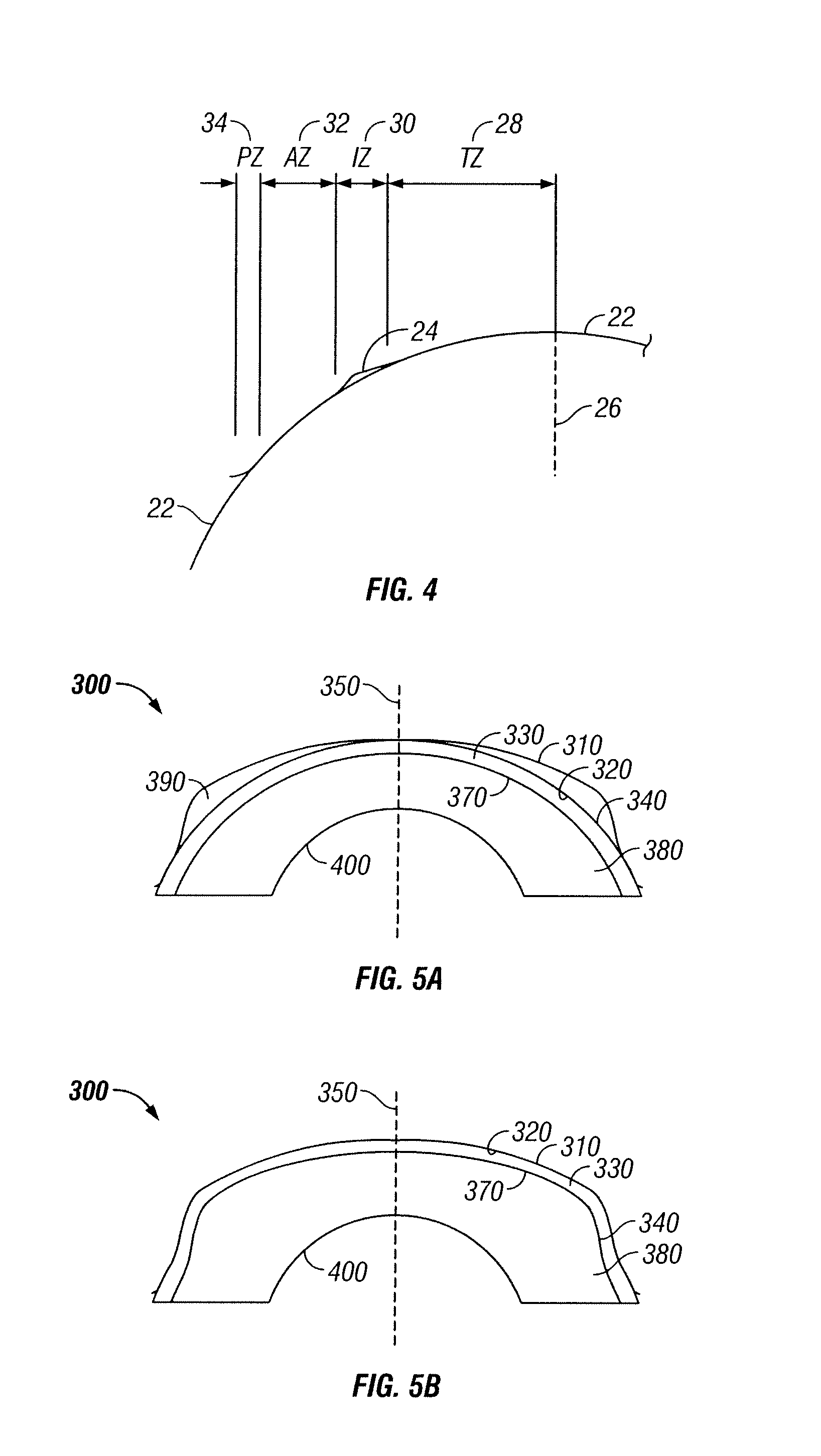Orthokeratological contact lenses and design methods therefor
a technology of orthokeratology and contact lenses, applied in the field of contact lenses, can solve the problems of hyperopic eyes that cannot focus on either far or near objects, and the retinal plane of the eye cannot be sharply focused, and achieve the effect of short treatment period, and effective and highly predictable orthokeratology of myopia
- Summary
- Abstract
- Description
- Claims
- Application Information
AI Technical Summary
Benefits of technology
Problems solved by technology
Method used
Image
Examples
Embodiment Construction
[0024]In the following paragraphs, the present invention will be described in detail by way of example with reference to the attached drawings. Throughout this description, the preferred embodiment and examples shown should be considered as exemplars, rather than as limitations on the present invention. As used herein, the “present invention” refers to any one of the embodiments of the invention described herein, and any equivalents. Furthermore, reference to various feature(s) of the “present invention” throughout this document does not mean that all claimed embodiments or methods must include the referenced feature(s).
[0025]The present invention is directed to contact lenses, methods of producing the contact lenses, methods of prescribing the contact lenses and methods of treatment of myopia using the contact lenses. Particularly, each contact lens preferably is designed based on physiological and anatomical considerations of a patient's eye to obtain a rapid and predictable ortho...
PUM
 Login to View More
Login to View More Abstract
Description
Claims
Application Information
 Login to View More
Login to View More - R&D
- Intellectual Property
- Life Sciences
- Materials
- Tech Scout
- Unparalleled Data Quality
- Higher Quality Content
- 60% Fewer Hallucinations
Browse by: Latest US Patents, China's latest patents, Technical Efficacy Thesaurus, Application Domain, Technology Topic, Popular Technical Reports.
© 2025 PatSnap. All rights reserved.Legal|Privacy policy|Modern Slavery Act Transparency Statement|Sitemap|About US| Contact US: help@patsnap.com



